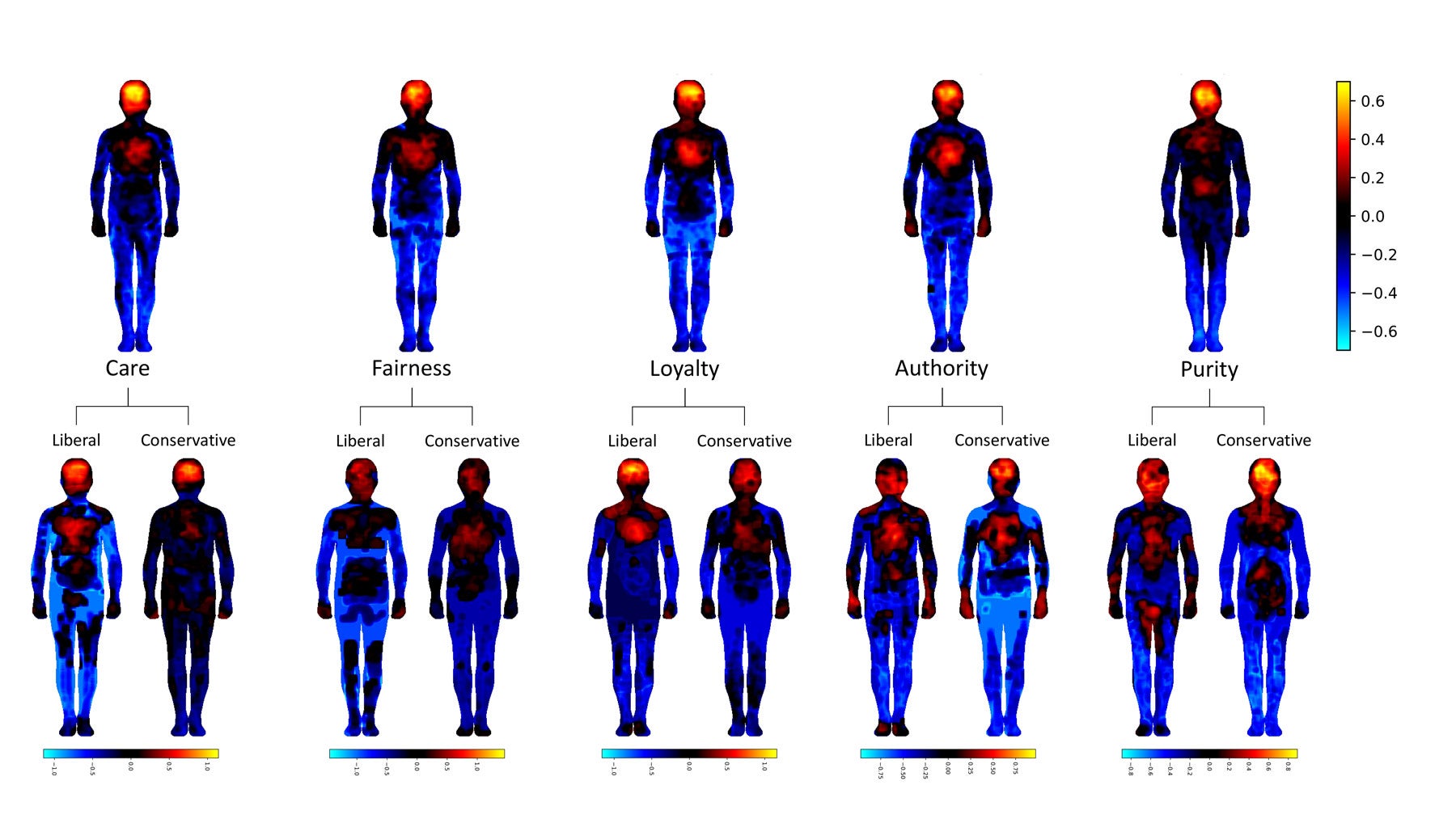
How does your body respond to feelings of moral outrage? Depends on your politics
When you see someone being unfair, disloyal or uncaring toward others, do you feel a sense of moral outrage in the form of a twisting stomach, pounding heart or flushing face? And is it possible that your body’s response depends on your political affiliation?
Researchers with the Brain and Creativity Institute at USC Dornsife College of Letters, Arts and Sciences, set out to examine how and where emotions associated with violations of moral concerns are experienced in the body, and whether political orientation plays a role.
“Our study finds that liberals and conservatives feel moral violations in different areas of their bodies, interpret them as distinct complex feelings, and make different moral and political judgments,” said Morteza Dehghani, assistant professor of psychology and computer science at the Brain and Creativity Institute. “This was particularly true for perceptions of feelings of loyalty and purity.”
The research was published Jan. 8 in Psychological Science.
Liberals and conservatives: Wired differently?
Prior research has shown liberals and conservatives rely on different moral foundations and react differently to violations of morals. The authors say their study is the first to indicate that political orientation influences where and how violations of specific moral concerns — including care, fairness, purity, loyalty and authority — are felt in the body. For example, liberals feel violations of purity in their crotch area, chest and slightly in their heads while conservatives feel these violations almost exclusively — and very strongly — in their heads.
The results are part of a growing body of research on psychological and physiological differences between liberals and conservatives and adds to the growing scientific body of work on how morality is linked to emotions.
“These findings suggest that at least some of these differences can be attributed to the basic emotional processes, which seem to function somewhat differently according to political affiliation. In addition, our results highlight a considerable amount of overlap in Republicans’ and Democrats’ emotional responses to moral transgressions,” said Mohammad Atari, the first author of the paper and a Ph.D. student at USC Dornsife.
 The body sensation maps show regions where activation increased (warm colors) or decreased (cool colors) in each moral violation condition. The color bar indicates the effect sizes. (Graphic: Courtesy of Morteza Dehghani.)
The body sensation maps show regions where activation increased (warm colors) or decreased (cool colors) in each moral violation condition. The color bar indicates the effect sizes. (Graphic: Courtesy of Morteza Dehghani.)
Moral outrage: Is it all in your head?
Many feelings associated with moral violations consistently showed up in the same areas of the body. Across moral violations, the head and face area were highly activated and were paired with varying levels of activation in the chest.
“The consistent activation observed in the head area suggests that people subjectively associate moral violations with high-level cognitive processing ‘in their head,’” Dehghani said. “This didn’t surprise us, as moral violation scenarios require a high level of cognitive and emotional processing, as well as an evaluation of standards of right and wrong.”
About the study
Additional authors include Aida Mostafazadeh Davani, a Ph.D. student in computer science at USC Dornsife’s Brain and Creativity Institute.